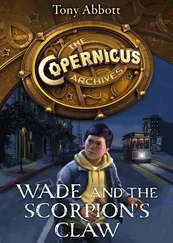According to Alfred, after we had gone our separate ways, they felt sorry about leaving me alone with Mundt, as they did not think it would turn out well. So they had followed us, but first had to change clothes behind a wall. Both had been carrying haversacks with a civilian jacket and trousers, thinking from the beginning that they would need them at some stage. So they hid their uniforms but in this process lost sight of us. They only found us again when we became involved in the fire fight.
For Mundt they were a minute too late, but firing their sub-machine guns saved me by stopping the Russians. They had then hidden themselves until they could follow the sounds of the chase, which is how they had caught up with me again. Needless to say, we were all delighted to meet up.
Alfred then suggested that we should all go to his home not far away, where he lived with his young wife. I advised against it as he had been seen there in uniform countless times and could easily be betrayed to the Russians, but he insisted that he had no enemies that would do this. I was still sceptical, but it was getting dark and we had better get off the streets, as there was bound to be a curfew. So we set off.
There was a lot of movement on the street. Now that people were no longer confined to their cellars, they were moving around pushing handcarts and carrying parcels. They were also looting the shops, most of which appeared to have no owners present to stop them. The Russians as the occupying power seemed unconcerned and were doing nothing to prevent the looting.
When Alfred announced that his was the next street ahead, I asked him to keep twenty paces behind us and cover our rear in an emergency. He laughed at my cautiousness, but agreed. Looking round the street corner, we saw that it had five-storey buildings on one side, the other being bounded by the two metre brick wall of an industrial site. Parked along the right hand side of the street was a convoy of three-axled American Studebaker trucks, in which ammunition cases could be seen through the partly opened canopies. The trucks were parked closely together with only about two metres between them.
The Russians were so unconcerned that they had made open camp fires alongside about every third truck and were squatting around roasting their delicacies.
Just as Alfred was pointing out which was his apartment, a woman appeared leaning out of the window, her arms held by Russians. She saw us and cried out in distress: ‘Alfred, come quickly! The Russians…’
We heard no more as she was pulled back into the room.
We had arranged that we would remain below to cover him, but the other comrade could not be held back and stormed in with him. I called out to Alfred: ‘Grab your wife and get out over the backyard! I will cover your retreat!’
They had pulled the sub-machine guns out of their bags, and I prepared my grenades. The sound of their sub-machine guns came from upstairs, alerting the Russians squatting beside their fires, who started going across. They did not notice the dirty Gipsy going behind the third truck and throwing a grenade inside, and again into the last-but-one truck, before heading for the street corner. Not that it mattered, for their time was up.
The blast of the explosion blew me to the end of the street and I blacked out. When I recovered consciousness, all I could see was a sea of rubble. The explosion had destroyed the convoy, knocked down the boundary wall and pushed in all the windows and their frames on the other side of the street. My guardian angel had taken care of me again. I had only suffered bruises, but the Russians had been spattered against the walls. Whether Alfred had managed to escape, I could not stay to find out. I limped away.
It was now really dark and I had to find somewhere for the night and get off the streets, which were still alive with looters.
I overtook an old woman pulling a fully loaded handcart and offered to help her take it home. She looked at me sideways: ‘I know, you are looking for a place to stay. Unfortunately, not with me. I have two daughters at home and there is coming and going day and night. The Russians just open the door. You know how it is.’
So I had to keep on looking. Eventually I came across an old man coming out of a shop cellar unsuccessfully trying to carry two large boxes on his shoulders. I offered to help. He too saw straight away what I was after. ‘I only have two rooms,’ he said, ‘but my wife is away, so take a box and come along.’
He passed me over a box and we went off like two loaded donkeys. The Russians did not look at us, for people running away do not carry boxes, as those naive lads knew. On our way I discovered what we were carrying. The boxes contained cans of green beans.
‘I’ll prepare something to eat when we get home,’ the old man said, and he did. ‘It would be best if you lay down on the bed with a wet cloth on your head and pretend to be ill. The Russians are bound to look in soon and see who I have brought with me.’
This seemed a good idea, and when the Russians looked in shortly afterwards I groaned in Russian that my head hurt and that I thought I had cholera, which sent them off in a hurry. Then we had our meal of green beans and burnt potatoes.
The night was full of the screams of women being raped.
Next morning I had a real Russian cat wash, which went as follows. I rinsed my mouth with the precious water, then put my head back and sprayed it into the air so that it fell over my face, which I then wiped with a cloth. The old man commented that I was still dirty, so I repeated the process.
Again we had green beans and baked potatoes. Clearly that would be the old man’s diet for the foreseeable future.
Now I needed to scout out the ground. I asked the old man if he could spare me a couple of buckets. As I did not know if I would be returning, I bade him a provisional farewell and thanked him for his support. He said: ‘I have a couple of grandchildren in the same situation as yourself, so it was only natural.’
I went along the street with my buckets looking for a street pump. I found one and stood in the queue for water, as there were quite a few people ahead of me. I half filled the buckets and set off, not back to the old man, but first to Alfred’s apartment to find out what had happened. With my buckets no one would suspect me of being on the run. There were many posters ordering all soldiers, Volkssturm, Party members, officials and others to report to the nearest Soviet post or be shot immediately.
When I got to Alfred’s street an old Russian soldier was shovelling the remains of his former comrades into ammunition boxes to bury them. When I asked him what had happened, he said that there had been an accident.
Below Alfred’s window lay three dead bodies that had been thrown out of the window. They were my comrades and Alfred’s wife. When the Russian saw me looking at them he commented: ‘Fascists with no sense of fun!’
I went off with my half filled buckets. The nearer I got to the city centre, the more and stronger the checkpoints I came across. I noticed that they seemed more interested in those leaving the city centre than those entering, which was understandable as fighting had been taking place only the previous day. There was a checkpoint ahead of me where papers were being examined. I stopped and put down my buckets as if taking a rest.
Then a Russian one-and-a-half tonner, one of their own primitive construction that had no battery and whose windscreen wipers were hand operated, drew up and stopped near me. Inside were three men packed close together on the narrow seat, the driver and two officers, with a German civilian standing beside them on the running board. The officer on the outside hit the civilian in the face with his fist, swore at him and threw him off.
Читать дальше












